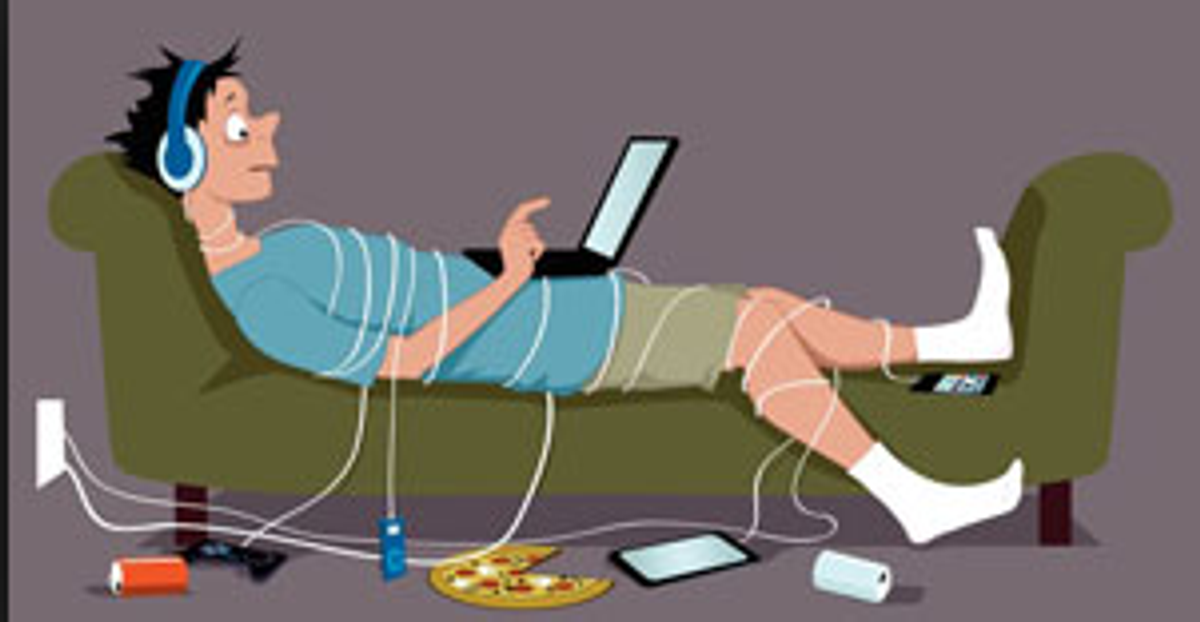Social Work/Well being News

“Technology opens the door to the world. It’s up to us to walk through it, in a meaningful and respectful way.” (Uni Finanzo)
Many of us can remember a time when our lives were not infused with digital technology, yet now many can’t imagine living without it.
Digital online technologies can provide many positive benefits for identity, education, social connection, creativity and communication yet at the same time there is potential for harm. There are growing concerns about the amount of time we spend online and using digital devices, the content risks, risks to privacy and confidentiality and to our health and wellbeing. Excessive gaming amongst young people is also becoming an increasingly big issue. Gaming addiction has even been classified as a mental health disorder by the World Health Organisation.
Many parents grew up in a world devoid of technologies and have little knowledge on how to assist and guide their children. As the range of social media platforms grows, so too does the opportunity for bullying and stalking. Often parents have no idea their child is a victim and kids are unlikely to report it for fear of losing access to their technology, which to them, is the equivalent of "social death”.
Being aware of potential sources of harm and strategies to use are important ways parents can help their children to stay safe online.
Strategies to assist
Encourage and support alternative activities and influences
- Encourage and support other activities such as outdoor or sporting activities, volunteering,
- community pursuits and face to face contact with family, friends and communities.
- Be a healthy role model – set limits to your own time online or using digital devices and model enjoyment of other activities
- Support the value of diversity, inclusion and equality for all and discuss the impact of attitudes and behaviours on others (both online and offline)
- Support the development of positive self-image and discuss what it means to have healthy relationships
Don’t lose sleep over it
- Many adolescents are choosing to continue playing video games late into the night, with studies showing that 24% of adolescents are gaming after 9pm. Gaming late into the night has been associated with higher levels of daytime sleepiness and an increase in the time taken to fall asleep, particularly if games are violent. This is problematic as sleep deprivation can cause a wide range of problems, such that it can lead to a decline in memory and concentration levels, as well as causing an increased focus on negative aspects.
Establish limits on online use
- Make a family agreement on the parameters on the use of digital technologies including clear limits about time, place, circumstances, monitoring and privacy. For example after homework only, not at dinner table, not directly before bed.
Keep up to date on technologies
- Find and share online resources that provide education and support for developing healthy attitudes and behaviours (such as healthy images and sites that promote inclusion and discourage stereotyping.
- If you are not familiar with certain online environments like chat rooms, Snapchat, Twitter, Facebook it makes it quite difficult for you to monitor or understand your child’s behaviour
Stay interested and involved in your child’s online experience
- Stay familiar with sites and networks
- Talk to your children about what they do online
- Discuss sites that are appropriate for their age and those that are not
- Notices changes in your child’s behaviour such as increased anxiety or withdrawal
- Keep record of concerning content or harassing messages in case things escalate.
Talk about online safety and appropriate behaviour online
- Talk to your child before issues arise and discuss strategies to address any issues and reassure them that you are there to support them
- Remind your child to only post what they are comfortable with others seeing and that online content can be seen for a long time even if deleted. This includes sending inappropriate or explicit photos. The majority of children who do this are coerced and feel pressured. This is not fair nor does it create equal and respectful relationships.
- Tell them not to impersonate someone else and that it is wrong to create posts or pages that seem to be written by someone else
School TV have some great information on a variety of topic, click the link below
The office of the eSafety Commissioner in Australia is responsible for promoting online safety for all Australians. It provides a wide range of resources and tips and advice for parents and carers on their website including:
- A Screen Smart Parent Tool and factsheets on a variety of topics
- The State of Play Social Media Usage video which explores the digital practices of teens and kids
- The Complaints and Reporting link explains what you need to do to notify authorities and report safety violations
- Wellbeing directory to help get the right information and support
So help spread the word about creating a safer, more positive internet—start a conversation with your child about which of the 4Rs of online safety is most important to them and how can they help build a better internet for everyone





